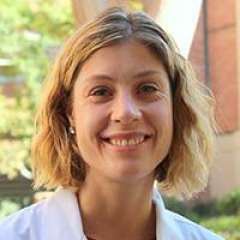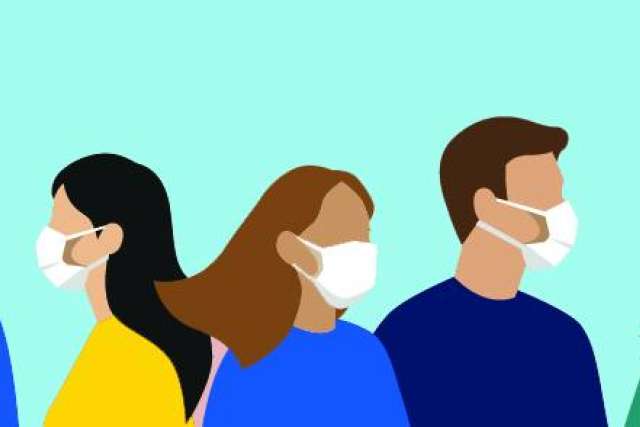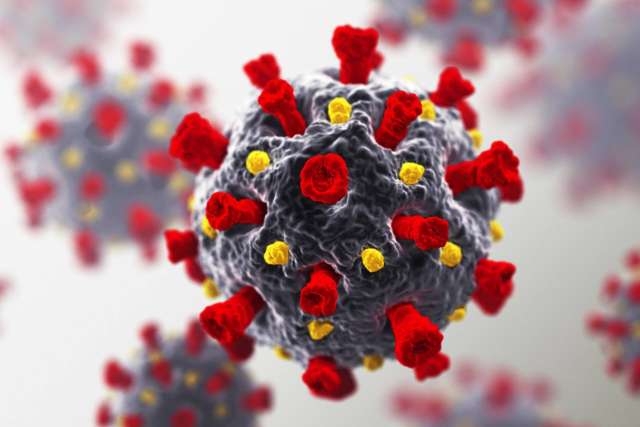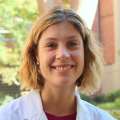Maskless spring break revelers traveling to Florida may have you concerned about a potential new surge of COVID-19 cases. If so, you have good reason.
Despite the increased distribution of COVID-19 vaccines from Moderna, Pfizer and Johnson and Johnson, this is still not the time to let our guard down and ignore physical distancing, mask wearing and hand-washing – precautions we have grown familiar with over the past year, says Annabelle de St. Maurice, MD, co-chief infection prevention officer at UCLA Health.For one thing, not everyone has had an opportunity to be vaccinated.
“Every state has struggled with vaccination distribution and having a sufficient supply of vaccine to get back to normal,” says Dr. de St. Maurice. “If you open everything up before everyone is vaccinated it can really pose a problem for public health – especially in Florida, where they removed the mask mandate.”
Spring break also comes at a time when much remains unknown about COVID-19 variants – mutant virus strains – that are showing up around the world. These variants have different genetic material than the original form of the virus. They sometimes result in viruses that are better adapted to transmit or survive more easily in the host.
There’s a certain degree of reduced vaccine efficacy against the variants, though how much remains to be determined.
Increased travel can result in greater transmission and potentially increased development of mutants, says Dr. de St. Maurice. It’s part of what makes mass spring break gatherings unsettling.

“It’s a large number of people getting together and probably having parties, indoors, in restaurants,” says Dr. de St. Maurice. “A lot of us are tired due to the recent surge over the holidays. Health care systems are stretched thin. In a couple of weeks that is really going to be problematic. And all of these individuals are going back to their communities – and even if they don’t personally get sick, they have the ability to spread it.”
Early on in the pandemic, after spring break 2020, there were reports of very high virus transmission rates among people staying in the same hotel, she says.
Dr. de St. Maurice says we should expect to be wearing masks in public for a while, until achieving herd immunity – a level of immunity within a given community, either through vaccination or through infection that makes it hard for a disease to spread.
Scientists initially estimated that 60% to 70% of the population would need to achieve immunity for herd conditions to exist. That estimation appears to be climbing. Dr. Anthony Fauci, the nation's leading infectious disease expert and director of the National Institute of Allergy and Infectious Diseases, recently stated it could be as much as 80% or more.
“It depends on local ability to vaccinate and, really, on national and global ability to vaccinate,” Dr. de St. Maurice says. “As long as there’s ongoing travel, it’s global herd immunity. When you’re in a public setting you don’t know where people have been or who they’ve interacted with. Your ability to protect yourself depends on who you’re around.”
Simply traveling by air to spring break destinations is risky in itself.
The Centers for Disease Control and Prevention still advises against air travel, even if vaccinated, to avoid spreading or acquiring COVID-19. For those who must travel, the CDC advises mask wearing, physical distancing and being tested for the virus before and after traveling.

“There are data that are promising from nursing homes that the vaccine does prevent transmission, but we need more data,” says Dr. de St. Maurice.
“I think in the meantime, we should keep doing what we’re doing,” she says. “Even if you’re doubly vaccinated, if people are around you, you don’t know if they’re vaccinated or if the vaccine works the same way.”




